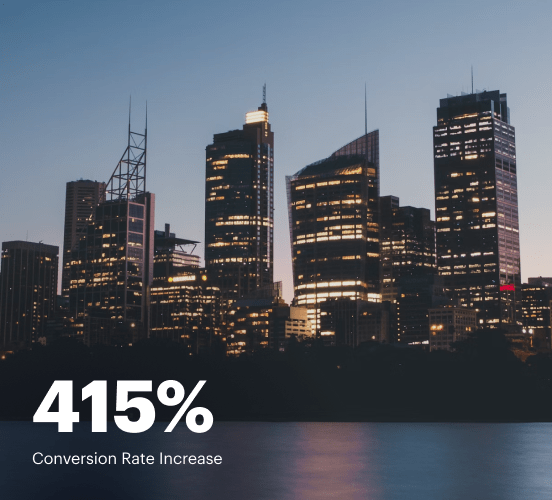How Twilio vs. WordPress vs. Instapage stack up against each other
Compare Instapage with Twilio and WordPress to create high-converting landing pages. With personalization, optimization, and collaboration tools, Instapage helps you deliver experiences that drive results.
Get startedSee how Instapage stacks up against the competition
| Feature | Instapage | Other builders |
| Drag-and-Drop Tools | ||
| Conversion-optimized templates | ||
| Manual and AI-powered A/B Tests | ||
| AI content suggestions | ||
| Popups and sticky bars | ||
| Canvas and grid blocks | ||
| Reusable and global elements | ||
| Form and popup builders | ||
| Built-in Heatmaps | ||
| Central analytics dashboard | ||
| Ad-to-page personalization and collections | ||
| Contacts, lists, and email | ||
| Dedicated, full-service CRO experts | ||
| Enterprise-ready platform |
Leading the way in building high-performing landing pages





Why Instapage is the smarter choice for your campaigns
Get everything you need to build, scale, and optimize high-converting landing pages—without coding.
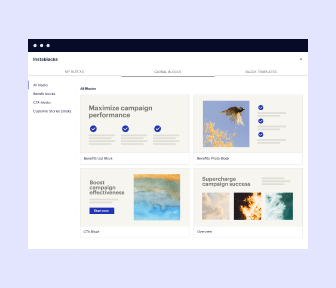
Easier page building without coding
Instapage offers a flexible and seamless page creation experience with a library of 500+ conversion-focused layouts, Instablocks®, a drag-and-drop builder, and AI content generation. With technologies like Thor Render Engine®, you can create on-brand, mobile-responsive landing pages that load quickly and start converting during initial visitor clicks.
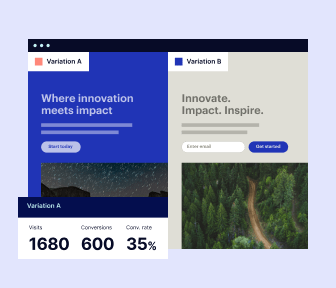
More insights — better results
Instapage lets you see in detail how each landing page experience and variation is performing so you can make targeted changes that boost page conversions. Use heatmaps for a better understanding of on-page activities, run A/B tests and AI-assisted experiments, and then track and evaluate results within robust analytics dashboards.
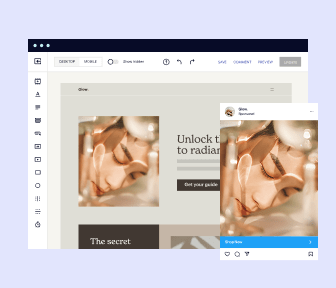
More personalized experiences
Instapage lets you quickly create high-performing landing pages tailored to each of your ad campaigns. Deliver personalized experiences for distinct audiences using dynamic text replacement. Effortlessly align specific advertisements to unique pages with AdMaps. Monitor audience-level metrics using our advanced data tools.
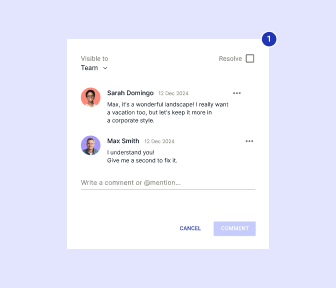
Built-in collaboration
Instapage collaboration capabilities bring your entire team together to speed up the process of landing page review, approval, and launch. No more frustrating and unnecessary revisions or edits scattered across emails. Provide instant feedback, conduct real-time page edits, and securely share your pages with outside stakeholders.
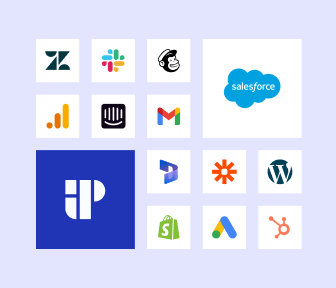
Free up time for your business
Invest time into business growth, not busy work. Launch landing pages faster with reusable forms and templates. Build once, reuse forever.
Explore all integrations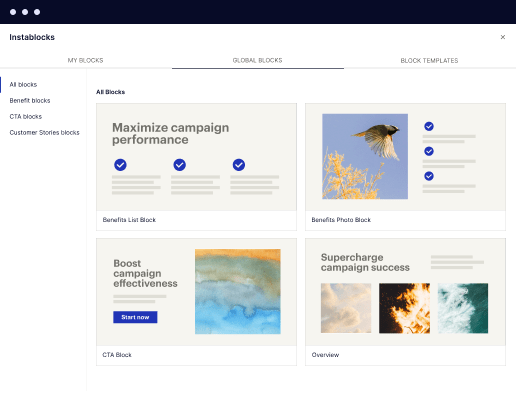
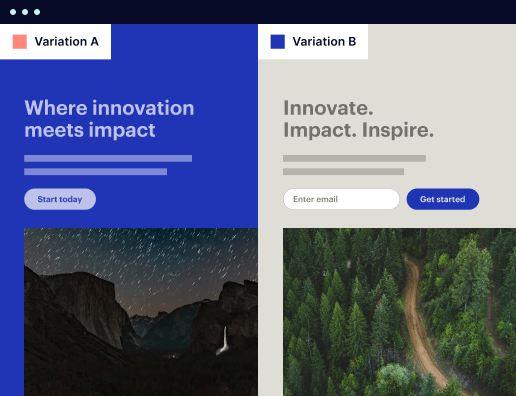
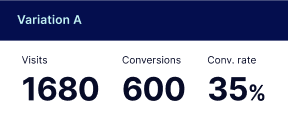
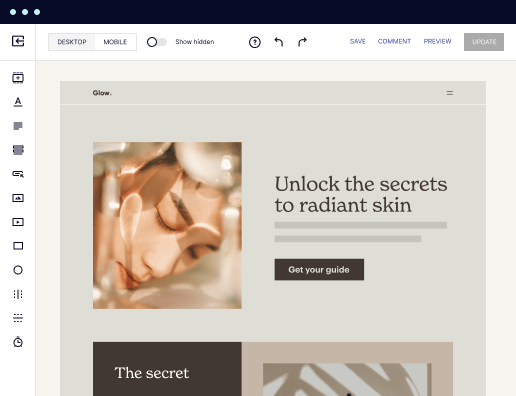

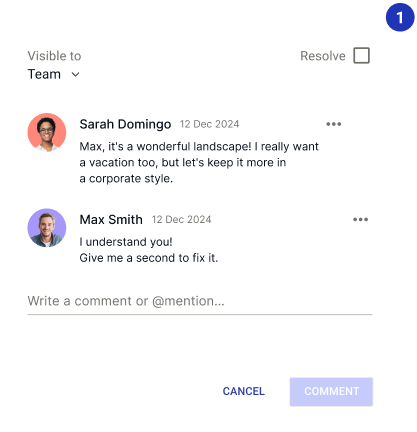

Easier page building without coding
Instapage offers a flexible and seamless page creation experience with a library of 500+ conversion-focused layouts, Instablocks®, a drag-and-drop builder, and AI content generation. With technologies like Thor Render Engine®, you can create on-brand, mobile-responsive landing pages that load quickly and start converting during initial visitor clicks.
More insights — better results
Instapage lets you see in detail how each landing page experience and variation is performing so you can make targeted changes that boost page conversions. Use heatmaps for a better understanding of on-page activities, run A/B tests and AI-assisted experiments, and then track and evaluate results within robust analytics dashboards.
More personalized experiences
Instapage lets you quickly create high-performing landing pages tailored to each of your ad campaigns. Deliver personalized experiences for distinct audiences using dynamic text replacement. Effortlessly align specific advertisements to unique pages with AdMaps. Monitor audience-level metrics using our advanced data tools.
Built-in collaboration
Instapage collaboration capabilities bring your entire team together to speed up the process of landing page review, approval, and launch. No more frustrating and unnecessary revisions or edits scattered across emails. Provide instant feedback, conduct real-time page edits, and securely share your pages with outside stakeholders.
Free up time for your business
Invest time into business growth, not busy work. Launch landing pages faster with reusable forms and templates. Build once, reuse forever.
Explore all integrationsGet started with Instapage in a few steps
-
Create your Instapage account
Start with Instapage by signing up via Google or your email. You'll get access to a free 14-day trial to discover Instapage capabilities. Feel free to cancel anytime during the 14-day trial if you decide that our product is not suitable for your business. -
Build and personalize your page
Create your first landing page from scratch or choose a template from 500+ customizable layouts. Use the drag-and-drop builder to add page elements, fonts, and backgrounds, refine content with AI, or add custom HTML, Javascript, and CSS. -
Review and make edits
Collaborate on page designs and streamline review processes. Invite your team members and stakeholders to review, edit, and provide feedback on your landing page. Collaborate knowing your page is confidential and only accessible to authorized users. -
Publish and track page performance
Publish your page to a domain or custom URL. Connect your pages to the ads you've created and track page performance within the analytics dashboard, run A/B tests and AI experiments, analyze results, and continuously optimize your landing page to maintain high conversions.
Instapage vs. Twilio vs. WordPress – Navigating the Best Landing Page Builders
Choosing the right tooling for landing page development is much like assembling a dream team of superheroes. Each option brings its unique powers to the table, enabling marketers to capture leads and boost conversions effectively. In this thrilling comparison, we will introduce three fierce competitors: Instapage, Twilio, and WordPress. Each platform promises to enhance your marketing efforts, but which one truly stands out? Join us as we explore the capabilities and quirks of these contenders, offering insights to help you make an informed decision, while keeping the tone light and engaging throughout the journey. Together, we'll unveil the features that matter most to you, addressing how each platform contributes to optimizing landing page experiences, ultimately leading to improved brand trust and customer loyalty.
Meet the Contenders: A Quick Overview
In one corner, we have Instapage, hailed as a premier landing page builder that empowers marketers to create relevant, high-converting experiences. Known for its rich template library and powerful editing tools, Instapage is often a go-to choice for marketers aiming to enhance conversion rates without breaking the bank. In another corner is Twilio, renowned more for its communication APIs, but also offering its own solutions for landing page creation. Twilio aims to foster seamless connections with customers, enhancing engagement through real-time communication. Finally, there's WordPress, the heavyweight champion of content management systems, which provides remarkable versatility and a host of plugins, making it possible to build landing pages with immense customizability. Each contender brings a unique set of features and capabilities that cater to different needs within the marketing arena. From ease of use to integration options, let's delve deeper into how these three platforms stack up against each other.
Round One – Feature Showdown
Template Variety and User Experience: A Comparative Look
When it comes to templates, each platform offers a unique range of options aimed at catering to diverse marketing strategies. Instapage boasts a vast library of professionally designed layouts that can be customized with a simple drag-and-drop interface. The ease of use allows marketers to create visually appealing and functional landing pages quickly. In contrast, Twilio provides fewer pre-designed landing pages, focusing instead on their API functionalities which may require more technical know-how. WordPress shines with its extensive library of themes and plugins, granting users unparalleled flexibility to create customized landing pages. While this power comes with a learning curve, it opens the door to a wide array of functionalities that can be integrated into your landing pages. Each platform's approach to features is unique, catering to different user needs, whether they seek effortless design or deep customization.
Why Instapage Stands Out: Customization and Optimization at Its Core
Instapage is more than a mere tool; it's a strategic companion in the world of digital marketing. It empowers marketers to create tailored landing page experiences with its sophisticated customization options. Marketers can choose from thousands of templates and seamlessly modify them to meet specific campaign needs. Moreover, the platform is engineered for conversion rate optimization, providing features such as A/B testing, heatmaps, and detailed analytics. These capabilities empower users to continually refine and enhance their landing pages, ensuring that they resonate with target audiences. Instapage also integrates smoothly with various marketing tools, further fortifying its position as an essential asset for any marketing strategy aiming to reduce costs while maximizing conversions. With this level of integration and focus on results, Instapage helps marketers foster greater brand trust and customer loyalty.
Round Two – Performance and Speed Comparison
A swift landing page can make all the difference in retaining potential customers. This brings us to performance, a crucial round in our comparison. Picture visiting a café and being met with long lines and slow service; it can drastically alter your experience, much like a sluggish landing page can influence a visitor’s decision to stay or leave. Load times and responsiveness are vital factors that can significantly affect user experience and bounce rates. In our next segment, we'll explore how each platform performs in terms of speed and impact on customer engagement.
Instapage's Performance Advantage:
- Swift load times due to optimization techniques that prioritize user experience
- Fast server response rates contribute to reduced bounce rates
- Built-in features that minimize heavy code for quicker delivery
- Responsive design elements that automatically adapt to various devices
Twilio's Performance Highlights:
- Offers quick integration with existing platforms to enhance performance
- APIs designed for keeping users engaged through responsive communications
- Real-time performance analytics assist in monitoring page effectiveness
WordPress Performance Benefits:
- Speed can vary based on hosting services, but optimized plugins exist
- Caching plugins significantly improve load times and user experience
- Customizable performance settings allow users to tweak for best results
- Responsive themes available ensure user experience remains top-notch
Through our analysis, Instapage emerges as the standout with its emphasis on speed and efficiency. While Twilio's communication-centric tools enhance user interaction, the breadth of performance enhancements integrated within Instapage solidifies its position as the premier choice for marketers who prioritize swift user engagement.
Round Three – Assessing Usability and Learning Experience
Navigating new software can be daunting, yet an intuitive platform fosters growth and confidence. In this round, we examine how each contender caters to both newcomers and seasoned marketers. Instapage is particularly praised for its user-friendly interface, allowing even those with minimal design knowledge to craft stunning landing pages with ease. The platform provides a plethora of tutorials and resources designed to aid users in becoming proficient quickly. On the other hand, Twilio, while powerful, caters more to developers with its robust API offerings. This requires a somewhat steeper learning curve, making it less accessible to non-technical users. Conversely, WordPress's extensive plugin library can be overwhelming for beginners, but it offers a learning journey that can empower users to master web design at their own pace. Each platform has its strengths, ensuring that users, regardless of experience, can grow in their proficiency.
Round Four – Customer Support: The Unsung Heroes
Imagine customer support as the dependable sidekick always there when you need assistance. This round highlights the support each platform provides. Instapage shines with its comprehensive support system, offering live chat, email, and extensive documentation guides, ensuring users feel supported throughout their journey. Twilio, while effective in addressing queries, primarily directs users to online resources and community forums, which may lengthen response times for urgent issues. In contrast, WordPress benefits from a vast community of users offering peer support through forums, yet the lack of centralized support can sometimes lead to frustration. Each platform’s approach to customer support exhibits its commitment to assisting users, balancing immediate help with community-driven resources.
Round Five – Pricing: Best Bang for Your Buck?
Evaluating pricing structures reveals the overall value provided by each platform. Instapage offers tiered pricing plans, catering to varying needs, allowing users to select a plan that aligns with their scale and budget. This flexibility makes it an attractive option for businesses seeking affordability without compromising features. Twilio operates on a pay-as-you-go model, appealing to those expecting variable usage. However, costs may accumulate rapidly depending on how interactive and communication-driven the landing page is. WordPress, while free to use, requires added expenses for premium themes and plugins that enhance functionality, thus demonstrating a varying degree of investment relative to maturity. Each platform accommodates different budgets and preferences, with unique pricing flexibility that can align better with specific user needs.
In conclusion, selecting the right landing page builder among these credible contenders hinges upon individual requirements. While Instapage showcases a strong suite of features aimed at increasing conversions, Twilio's integration strengths cater more to developer-focused audiences, and WordPress offers unmatched flexibility. Ultimately, the choice boils down to what marketers prioritize—be it features, support, or cost. For those keen on optimizing landing pages without the hassle, taking Instapage for a spin through a free trial could be the ideal next step.



